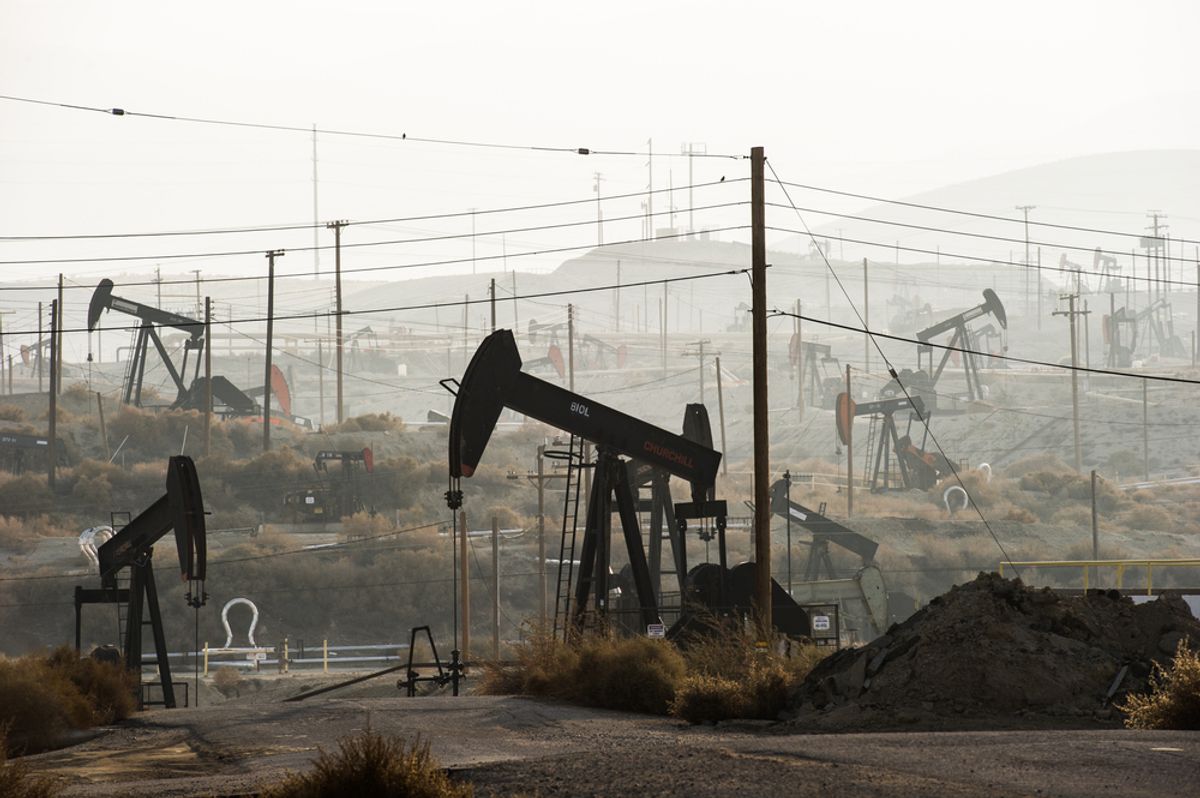Natural gas drilling is responsible for contaminating drinking water in Pennsylvania and Texas, a new study finds. The direct cause is methane leaking from natural gas wells. But make no mistake: This is a fracking problem.
A team of scientists from Duke, Ohio State, Stanford, Dartmouth and the University of Rochester used a new process, involving noble gas and hydrocarbon tracers, to analyze the gas content of 130 water wells in the two states. Their findings, published Monday in the journal Proceedings of the National Academy of Sciences, show that methane found in drinking water wells usually comes from natural sources. But in eight cases -- seven in Pennsylvania, one in Texas -- they proved that the methane had escaped from flawed natural gas wells, meaning drilling was responsible.
“Unconventional gas and oil extraction, done badly, contaminates drinking water," Rob Jackson, a professor of environmental sciences at Stanford and a study co-author, told Salon.
The study was looking at two important questions, Avner Vengosh, a professor of geochemistry and water quality at Duke and one of the study's authors, explained: the source of water contamination being reported in these states, and the way that contamination is actually happening. Some people who oppose fracking have suggested that when high volumes of water and chemicals are injected, at high pressures, into the ground miles beneath the surface, the gas that's released is able to migrate to the surface -- which would mean the process of fracking itself poses a fundamental risk to water safety. Based on these findings, that doesn't appear to be the case. While the source of contamination is natural gas extraction, the mechanism, according to these findings, is leaky wells.
But if fracking -- as in, the specific process that the term refers to -- might be off the hook, that doesn't mean that "fracking" -- as used to refer to the boom in natural gas drilling that's taken place in recent years as a result of fracking -- gets a pass. Study author Thomas H. Darrah, an assistant professor of earth science at Ohio State, explained that the industry tends to insist that methane found in drinking water is completely natural; these findings prove that isn't always the case. And that, the authors insist, is what matters.
"It's true that where the process is happening, someone’s drinking water is being contaminated," said Jackson. "I don't think it matters to a homeowner where in the process it happens."
(More research is needed, by the way, before we can say that fracking, in the literal sense, isn't contributing to the problem. The authors point out that the high volumes and heavy pressure used in the fracking process put extra stress on the wells, which could be making it more difficult to maintain their integrity. And where fracking occurs, Vengosh added, there's usually a higher frequency of drilling per square mile than we see with conventional extraction -- upping the probability of a leak.)
“There’s no debate that oil and gas activity is contaminating people’s drinking water," said Amy Mall, a senior policy analyst at the Natural Resources Defense Council. "This is yet another study that provides that scientific evidence.” It's rather like climate change: instead of continuing to fight over whether or not it's happening, Mall said, the task now is to figure out how to fix it -- in this case, to stop water contamination from happening in the future.
The good news, according to Jackson, is that contamination was only found in a small percentage of cases, meaning we should be able to narrow down the source of the problem. It's possible, he said, that local geology could be affecting well integrity. But it's also possible that human error plays a role, especially because the natural gas boom, as its name suggests, is happening so quickly. When wells are being drilled at a pace of up to 100 per day, it's easy for things to go wrong.
But while fracking may be fixable, the onus remains on the industry to go ahead and fix it. Along with that, added Malls, we need "strong rules and meaningful enforcement" on the state and federal level in order to protect homeowners whose water is at risk -- something that's been lagging far behind the pace of drilling.
"Improvements in well casing won’t eliminate all the risks, but there are definitely methods to reduce the risk and protect drinking water," said Mall. "And it’s unacceptable that regulations aren’t in place to make that happen."



Shares